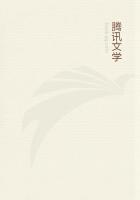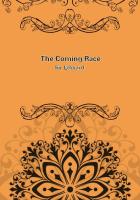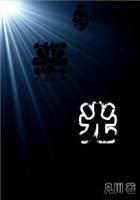10 In short, so fatal is the notion of possessing, even in the most precious words or standards, the one thing needful, of having in them, once for all, a full and sufficient measure of light to guide us, and of there being no duty left for us except to make our practice square exactly with them,--so fatal, I say, is this notion to the right knowledge and comprehension of the very words or standards we thus adopt, and to such strange distortions and perversions of them does it inevitably lead, that whenever we hear that commonplace which Hebraism, if we venture to inquire what a man knows, is so apt to bring out against us, in disparagement of what we call culture, and in praise of a man's sticking to the one thing needful,-- he knows, says Hebraism, his Bible! --whenever we hear this said we may, without any elaborate defence of culture, content ourselves with answering simply: 'No man, who knows nothing else, knows even his Bible.'
11 Now the force which we have so much neglected, Hellenism, may be liable to fail in moral strength and earnestness, but by the law of its nature,--the very same law which makes it sometimes deficient in intensity when intensity is required,--it opposes itself to the notion of cutting our being in two, of attributing to one part the dignity of dealing with the one thing needful, and leaving the other part to take its chance, which is the bane of Hebraism. Essential in Hellenism is the impulse to the development of the whole man, to connecting and harmonising all parts of him, perfecting all, leaving none to take their chance.
12 The characteristic bent of Hellenism, as has been said, is to find the intelligibly law of things, to see them in their true nature and as they really are. But many things are not seen in their true nature and as they really are, unless they are seen as beautiful. Behaviour is not intelligible, does not account for itself to the mind and show the reason for its existing, unless it is beautiful. The same with discourse, the same with song, the same with worship, all of them modes in which man proves his activity and expresses himself. To think that when one produces in these what is mean, or vulgar, or hideous, one can be permitted to plead that one has that within which passes show; to suppose that the possession of what benefits and satisfies one part of our being can make allowable either discourse like Mr. Murphy's or poetry like the hymns we all hear, or places of worship like the chapels we all see,--this it is abhorrent to the nature of Hellenism to concede. And to be, like our honoured and justly honoured Faraday, a great natural philosopher with one side of his being and a Sandemanian with the other, would to Archimedes have been impossible.
13 It is evident to what a many-sided perfecting of man's powers and activities this demand of Hellenism for satisfaction to be given to the mind by everything which we do, is calculated to impel our race. It has its dangers, as has been fully granted. The notion of this sort of equipollency in man's modes of activity may lead to moral relaxation; what we do not make our one thing needful, we may come to treat not enough as if it were needful, though it is indeed very needful and at the same time very hard. Still what side in us has not its dangers, and which of our impulses can be a talisman to give us perfection outright, and not merely a help to bring us towards it? Has not Hebraism, as we have shown, its dangers as well as Hellenism? or have we used so excessively the tendencies in ourselves to which Hellenism makes appeal, that we are now suffering from it? Are we not, on the contrary, now suffering because we have not enough used these tendencies as a help towards perfection?
14 For we see whither it has brought us, the long exclusive predominance of Hebraism,--the insisting on perfection in one part of our nature and not in all; the singling out the moral side, the side of obedience and action, for such intent regard; making strictness of the moral conscience so far the principal thing, and putting off for hereafter and for another world the care for being complete at all points, the full and harmonious development of our humanity. Instead of watching and following on its ways the desire which, as Plato says, 'for ever through all the universe tends towards that which is lovely,' we think that the world has settled its accounts with this desire, knows what this desire wants of it, and that all the impulses of our ordinary self which do not conflict with the terms of this settlement, in our narrow view of it, we may follow unrestrainedly, under the sanction of some such text as 'Not slothful in business,' or, 'Whatsoever thy hand findeth to do, do it with all thy might,' or something else of the same kind. And to any of these impulses we soon come to give that same character of a mechanical, absolute law, which we give to our religion; we regard it, as we do our religion, as an object for strictness of conscience, not for spontaneity of consciousness;for unremitting adherence on its own account, not for going back upon, viewing in its connexion with other things, and adjusting to a number of changing circumstances. We treat it, in short, just as we treat our religion,--as machinery. It is in this way that the Barbarians treat their bodily exercises, the Philistines their business, Mr. Spurgeon his voluntaryism, Mr. Bright the assertion of personal liberty, Mr. Beales the right of meeting in Hyde Park. In all those cases what is needed is a freer play of consciousness upon the object of pursuit; and in all of them Hebraism, the valuing staunchness and earnestness more than this free play, the entire subordination of thinking to doing, has led to a mistaken and misleading treatment of things.















